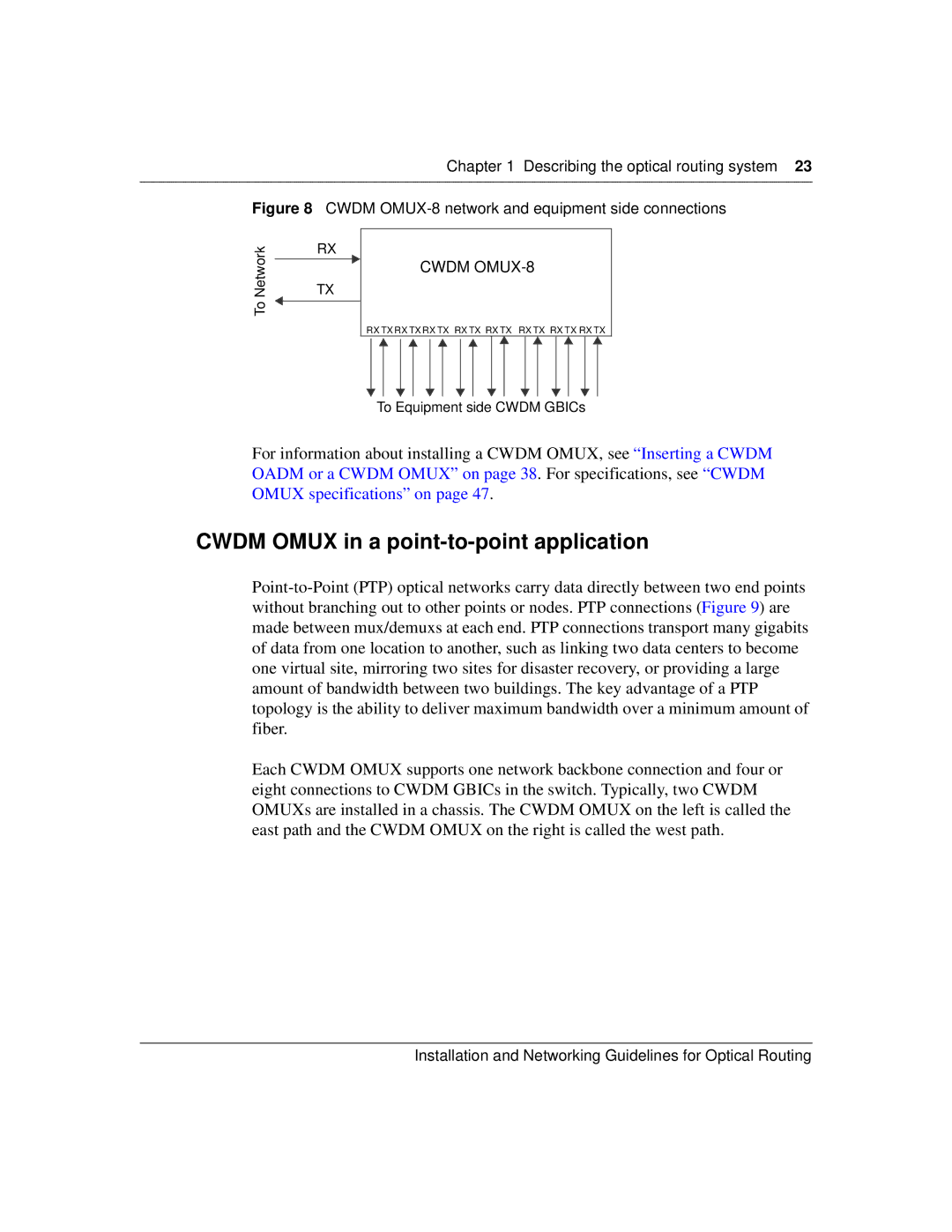
Chapter 1 Describing the optical routing system 23
Figure 8 CWDM OMUX-8 network and equipment side connections
To Network
RX
TX
CWDM
RX TX RX TX RX TX RX TX RX TX RX TX RX TX RX TX
To Equipment side CWDM GBICs
For information about installing a CWDM OMUX, see “Inserting a CWDM OADM or a CWDM OMUX” on page 38 . For specifications, see “CWDM OMUX specifications” on page 47 .
CWDM OMUX in a point-to-point application
Each CWDM OMUX supports one network backbone connection and four or eight connections to CWDM GBICs in the switch. Typically, two CWDM OMUXs are installed in a chassis. The CWDM OMUX on the left is called the east path and the CWDM OMUX on the right is called the west path.
